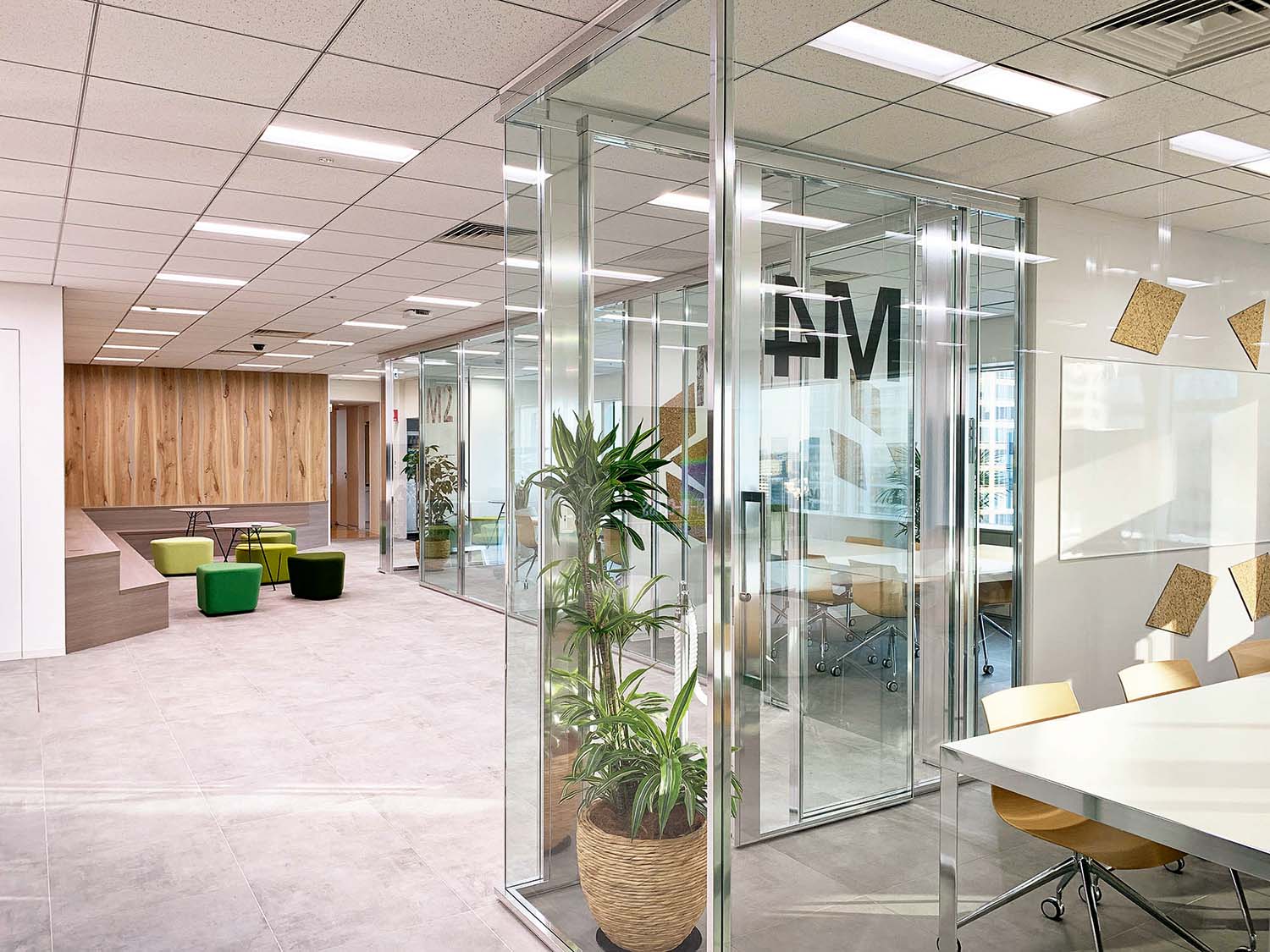Login
Registered users
Like a Japanese Dry Garden

Well-being, creativity and flexibility are the underlying principles for the revamp and new layout of Cybernet Systems in Tokyo, a company that uses computer technology to offer business solutions from its premises in the Fuji Soft Akihabara Building. Developed by Shukoh and designed by MB-AA Matteo Belfiore Architect and Associates, working closely with the company’s top management, the design reflects the group’s philosophy by creating a form for flexibility and conversion using an open-plan basis with see-through partitions. The overarching goal is to use space to promote better relations between employees, to improve their well-being and to increase the
group’s productivity.
The capacity to adapt each space to contingent needs is a cornerstone of this project, but from this basis the environments are divided into two macro-areas. The first, called the Cyber-garden as a reference to ancient Japanese dry gardens, is really a space for welcoming visitors, with a lounge area and a series of spaces for meetings and seminars. The second is solely for employees, with options for both individual and collective working. The wings of these premises are interspersed with transparent partitions to merge the dual desire for visual continuity and office optimization.

The same rationale was adopted in selecting the furniture, such as the tables of various heights, and the modular, adjustable chairs and stools, thus eliminating any unnecessary elements. The furniture is not only robust and recyclable, but also helps promote relations and dialogue between people in a generally comfortable setting. The choices for the lighting design and the inclusion of plants should be seen as pursuing the same goals, with natural light a fundamental aspect.
Specifically for the floors, tables and desktops, various solutions from Iris Ceramica Group were selected, especially the Active Surfaces® materials, which leverage the photo-catalytic properties of titanium dioxide. When the latter is combined with silver, it turns simple ceramic slabs into eco-active materials with antibacterial, antiviral, anti-pollution, anti-odor and self-cleaning properties.

For the floors, solutions from the Urban Active collection by Fiandre Architectural Surfaces (a brand of Iris Ceramica Group) were chosen, while the Naòs tables by Unifor (designed by Cerri & Associati and a winner of the Compasso d’Oro award in 2004) are a wonderful example of tailor-made design, found in the meeting rooms. For these, Uni.Ice Active eco-active surfaces were used. Recent tests have shown that this technology, developed by the group in conjunction with the University of Milan, is also effective against Sars-CoV-2, the virus that causes Covid-19, with 94% of the virus eliminated after only four hours of exposure to natural or artificial light. The overall effect of this is to help improve the quality of working life by cleverly integrating technologies and hi-tech solutions into environments.



ACTIVE SURFACES®